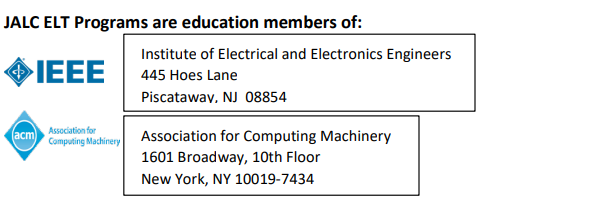Science, Technology, Engineering, and Mathematics Programs
- Actuarial Science – AA Degree
- Agriculture-Animal Science – AA Degree
- Agriculture-Crop Science and Soil Science – AA Degree
- Biological Science – AS Degree
- Chemistry – AS Degree
- Computer Science – Business Applications Track – AS Degree
- Computer Science – Traditional Track – AS Degree
- Economics – AA Degree
- Electrical Engineering Technology – AAS Degree
- Electronics Technician – Certificate
- Electronics Technology – AAS Degree
- Engineering – Chemical Engineering – AES Degree
- Engineering – Civil Engineering – AES Degree
- Engineering – Computer Engineering – AES Degree
- Engineering – Electrical Engineering – AES Degree
- Engineering – General Engineering – AES Degree
- Engineering – Industrial Engineering – AES Degree
- Engineering – Mechanical Engineering – AES Degree
- Mathematics – AS Degree
- Mechatronics Engineering Technology – AAS Degree
- Physics – AS Degree
- Pre-BSN – AA Degree
- Pre-Chiropractic – AS Degree
- Pre-Pharmacy – AS Degree
- Pre-Physical Therapy – AS Degree
- Pre-Physician Assistant – AS Degree
- Pre-Professional Dental, Medicine, Optometry, Podiatry – AS Degree
- Pre-Veterinary – AS Degree
Electrical Engineering Technology
Associate in Applied Science
Engineering is the application of scientific and mathematical principles to solve problems. The Associate of Applied Science Degree in Electronic Technology prepares graduates for a career as an Electronics Technician, with job skills that include basic electrical system installation, operations, maintenance, troubleshooting, and service. This degree also provides solid education in DC/AC electrical theories, electrical wiring, digital devices, Programmable Logic Controller (PLC) systems, motors, and basic computer maintenance.
Students take fundamental courses common to most engineering disciplines and continue their studies in specialized areas after transferring. John A. Logan has transfer agreements in place with surrounding universities in the region. Prospective students interested in engineering should possess the following:
What You Can Do
The graduate in Electronics Engineering Technology will be prepared for entry-level careers in areas such as: product development and support technician, field engineering/service technician, test engineering technician, technical documentation, technical sales/marketing, telecommunications and wireless systems development and support, research and development, quality assurance, and technical documentation.
Jobs
- Electronic Equipment Installation and Repair
- Maintenance Technician
- Broadcast Communications Technician
- System Technician
- Plant Technician
- Telephone Technician
- Fiber Installation
- Maintenance Testing
- Troubleshooting and Repair
Earning Potential
Bureau of Labor Statistics, U.S. Department of Labor, Occupational Outlook Handbook, Electrical and Electronics Engineers,
at https://www.bls.gov/ooh/architecture-and-engineering/electrical-and-electronics-engineers.htm
Modes of Instruction
Learn more about the modes of instruction offered at John A. Logan College.
Program Details
ELT 3012
Electrical Engineering Faculty Contact
Jacob Pollex
Instructor of Electronics Technology
Email: jacob.pollex@jalc.edu
Phone: (618) 985-2828 Ext. 8868
Office: G104 B
